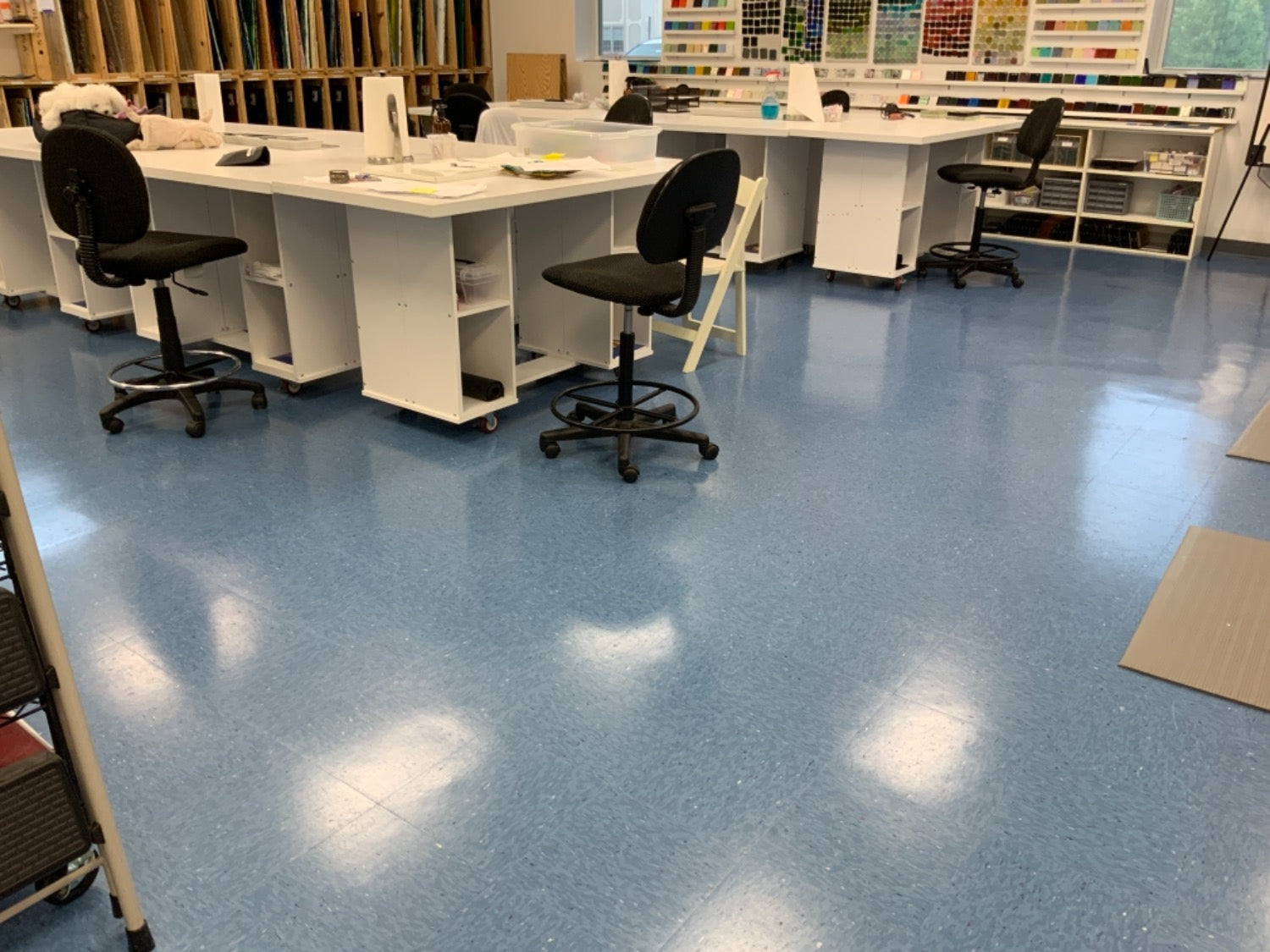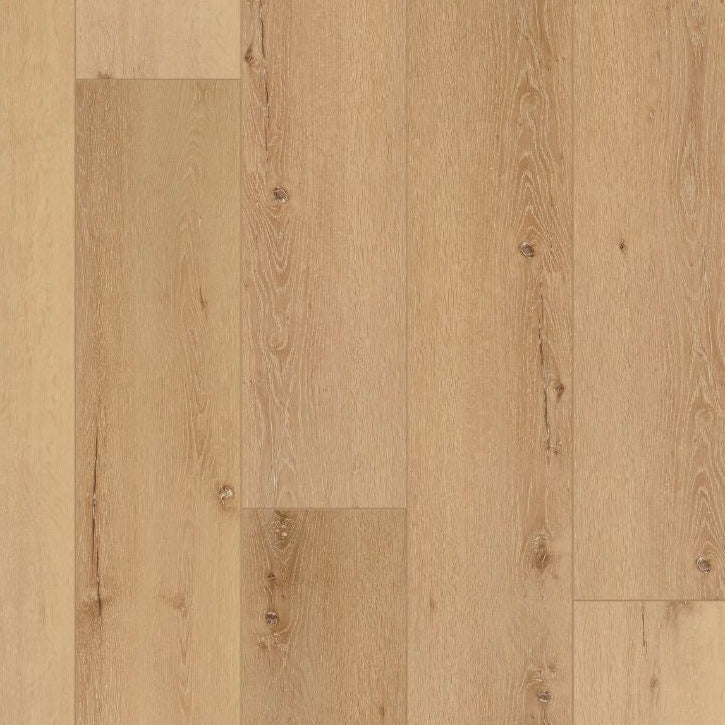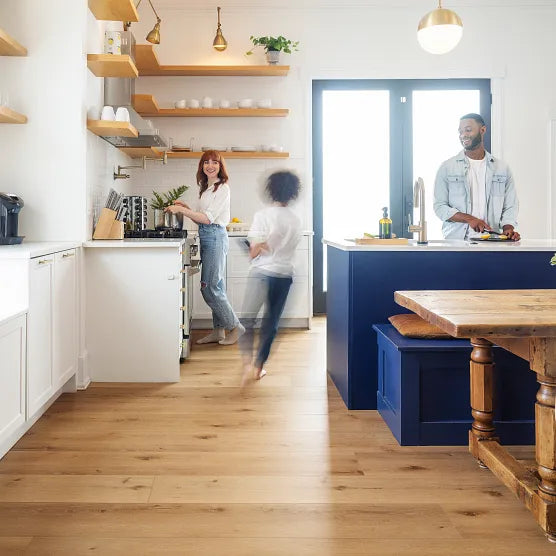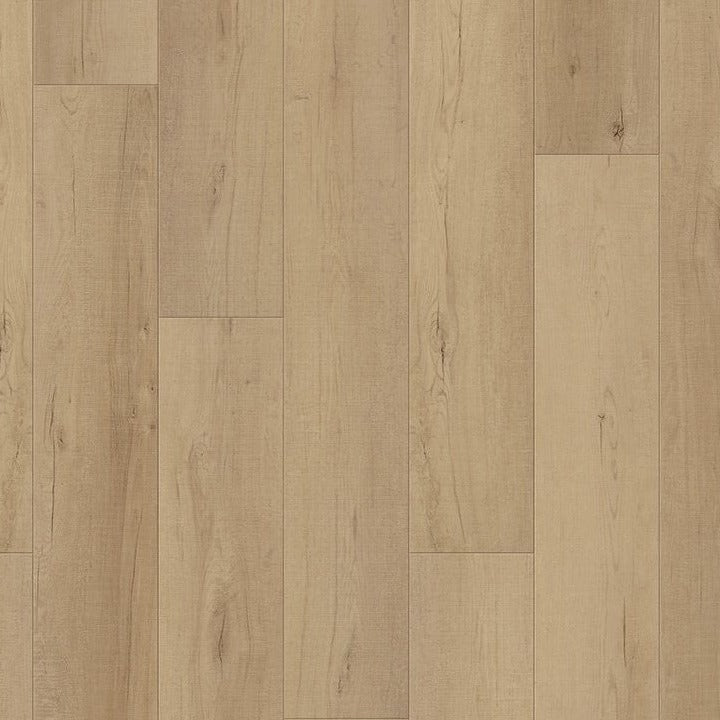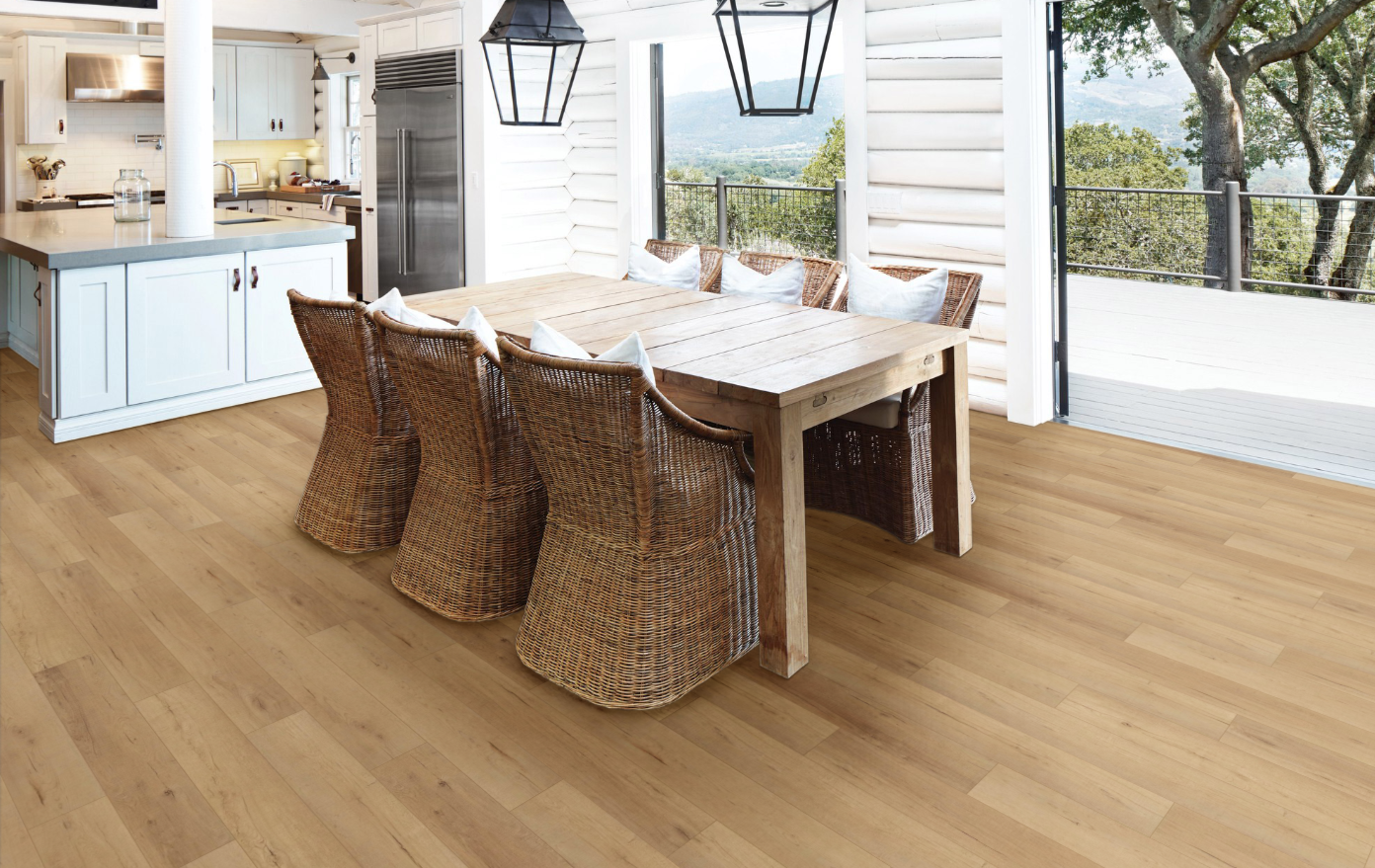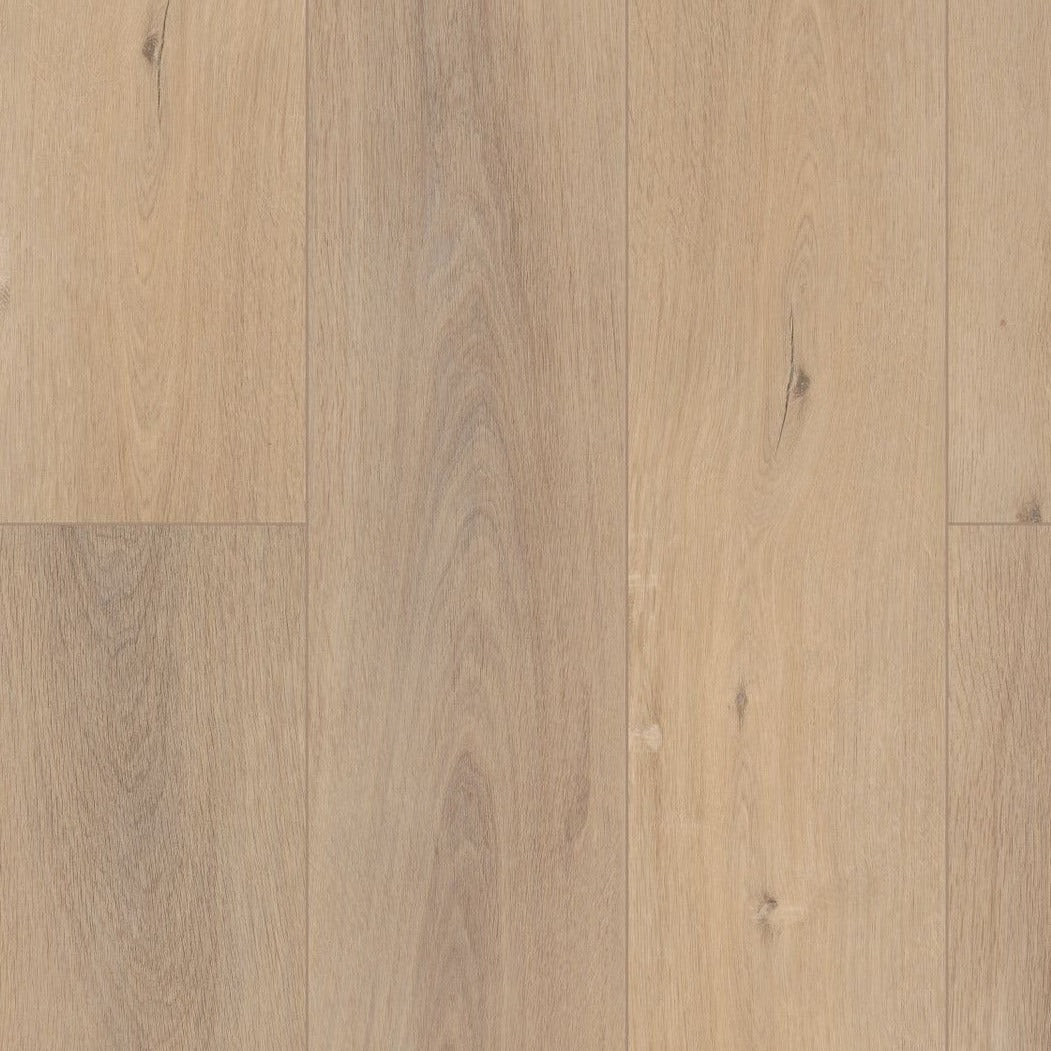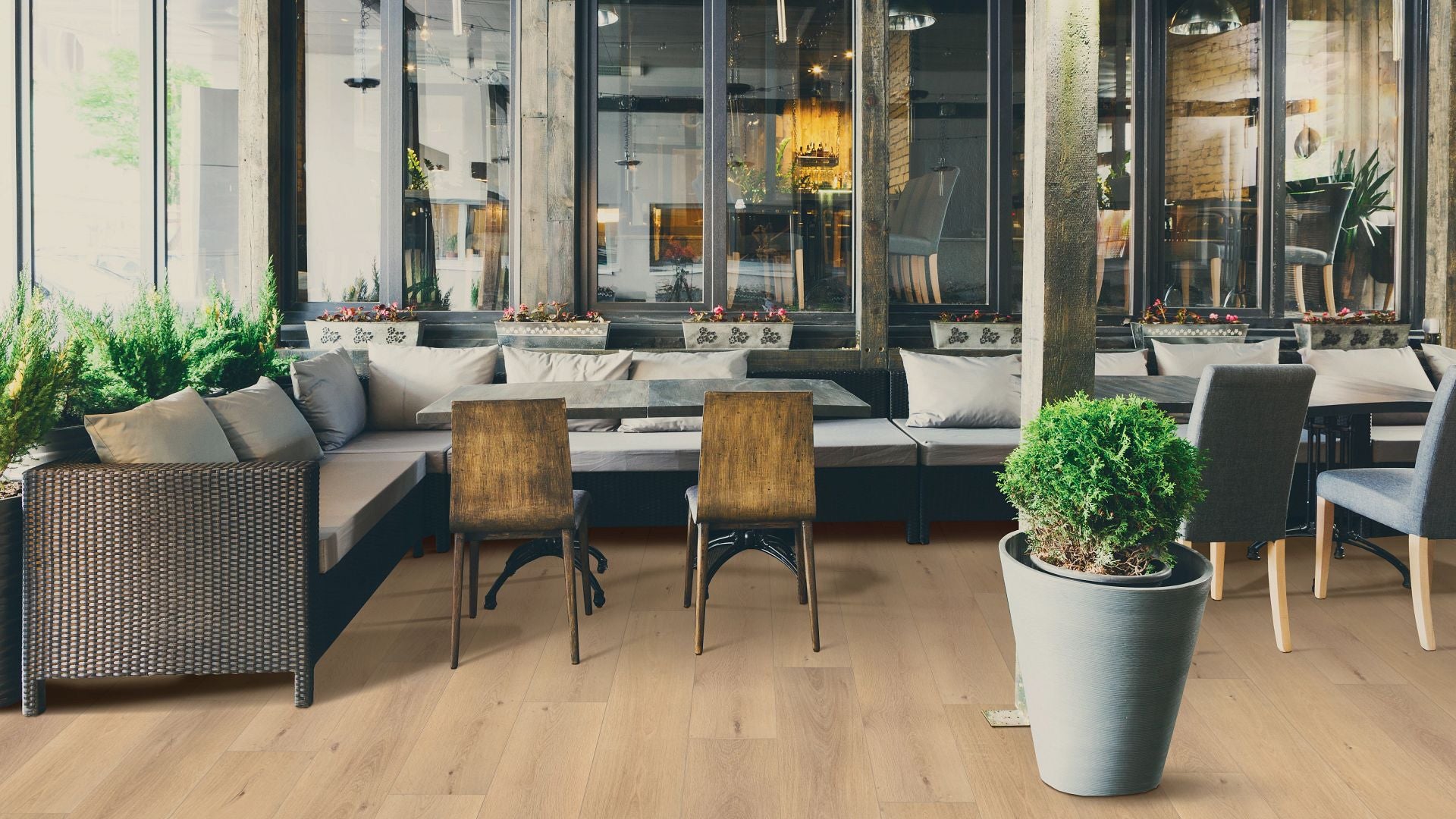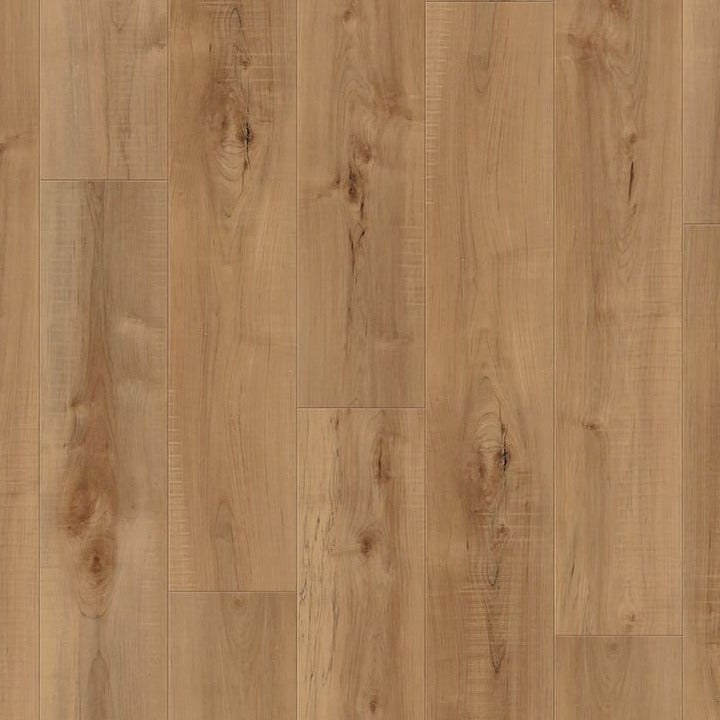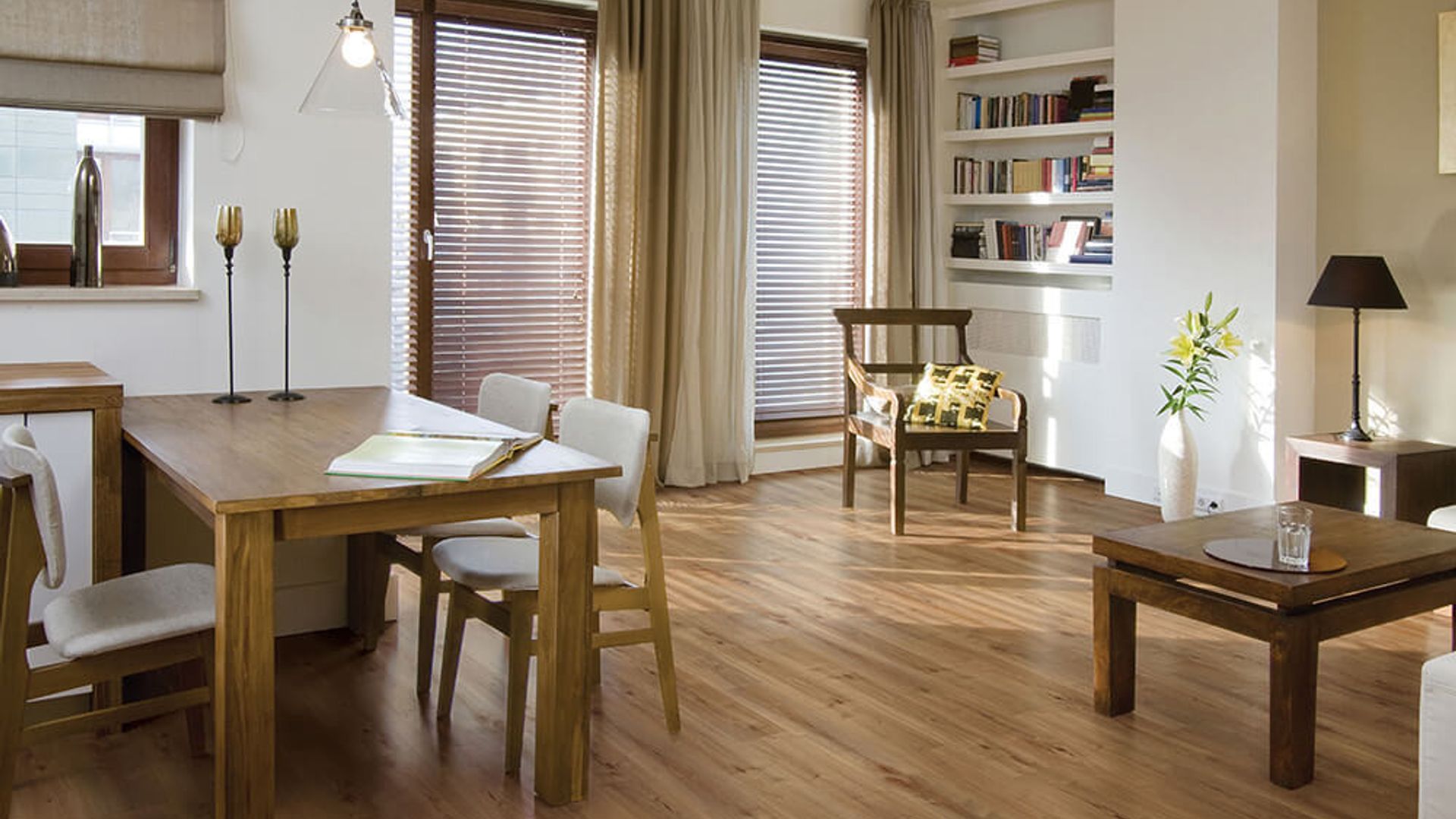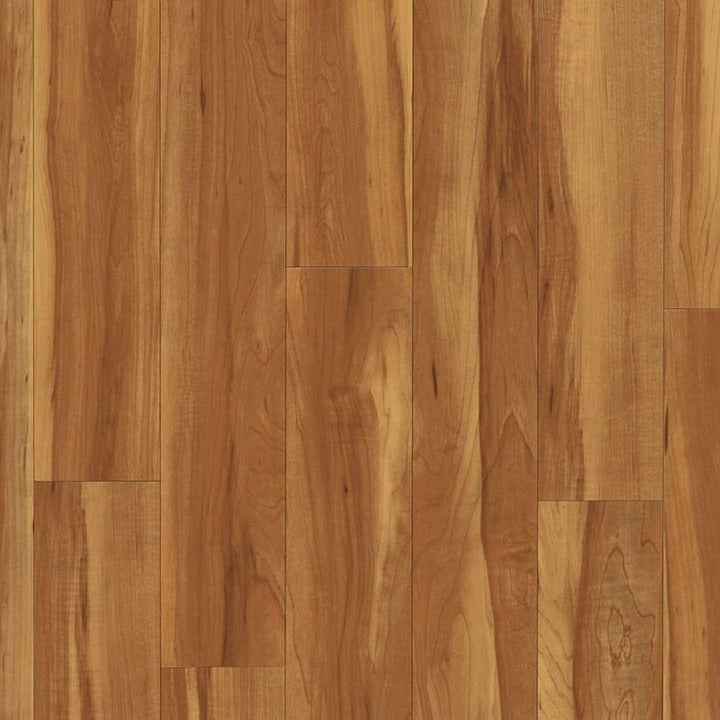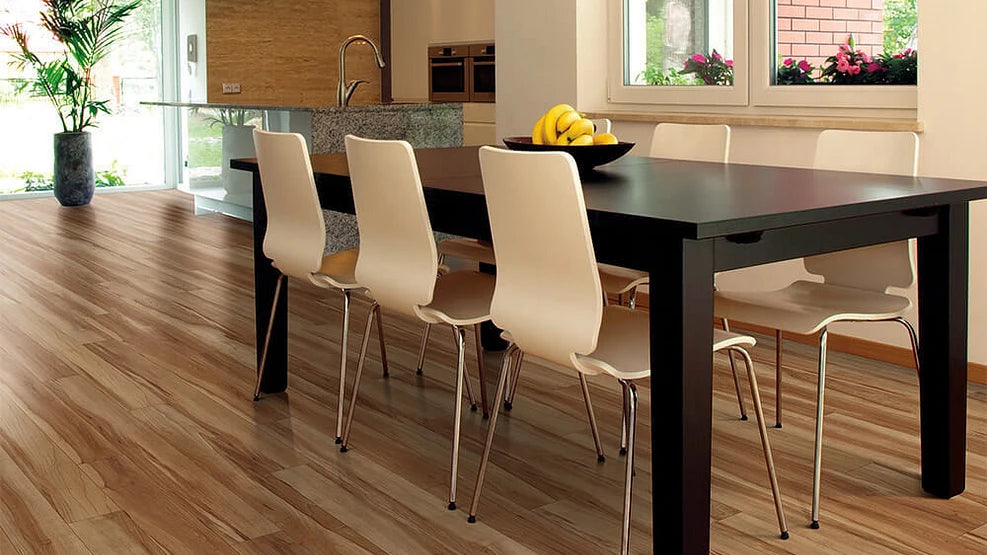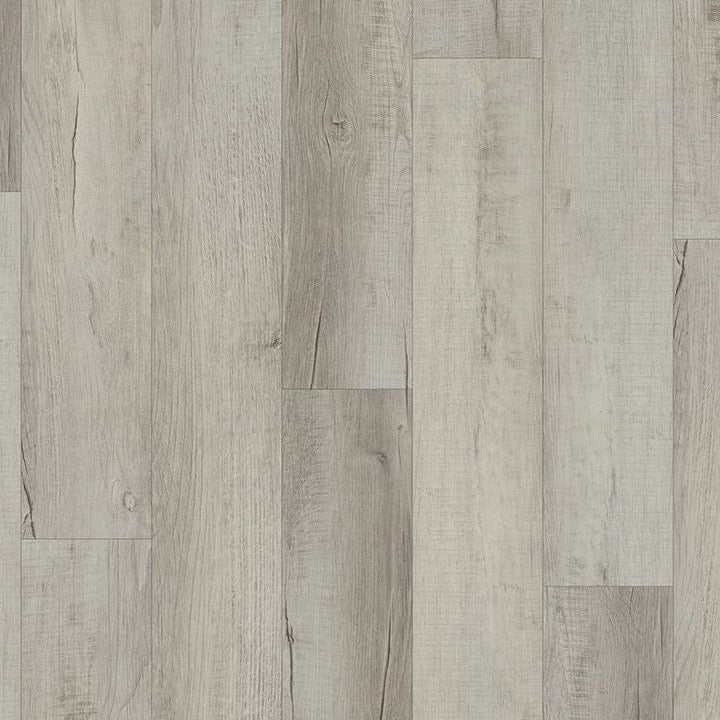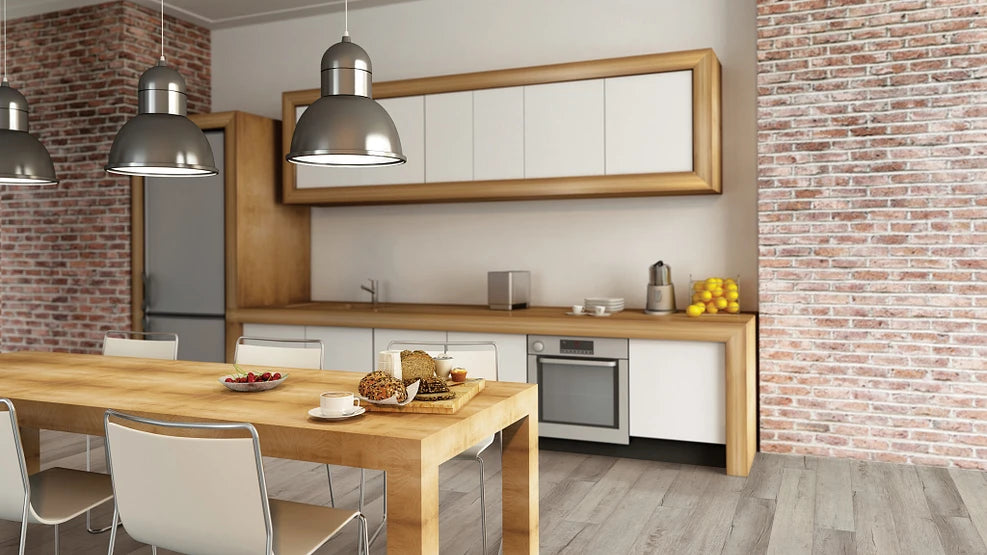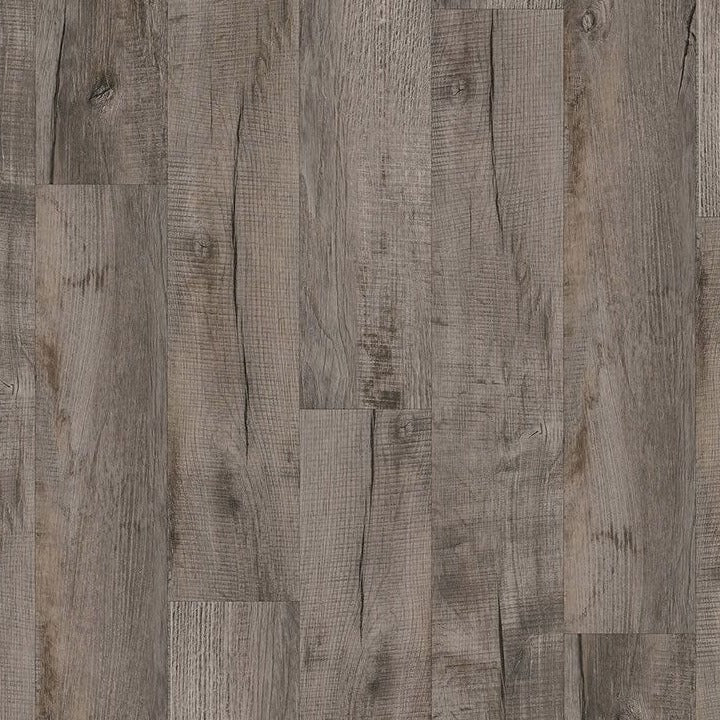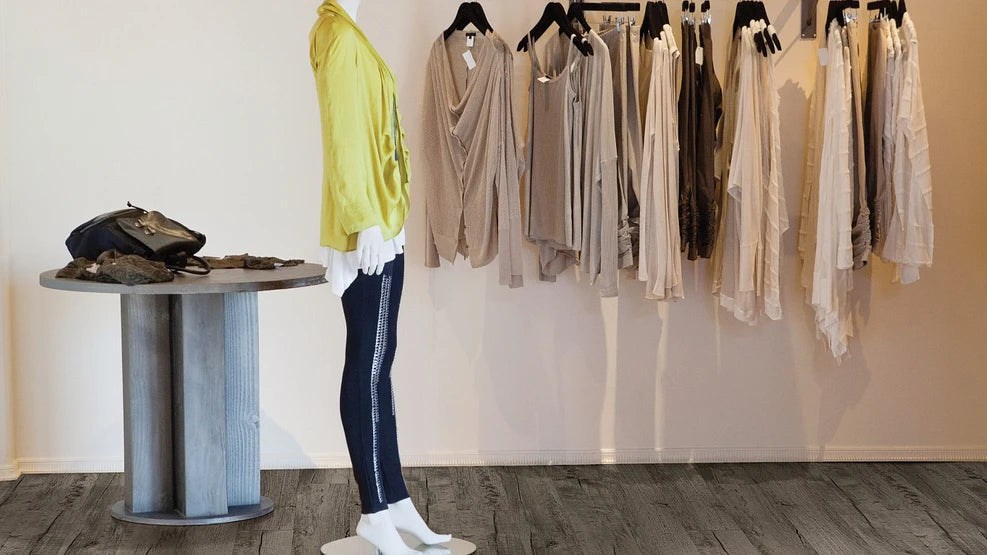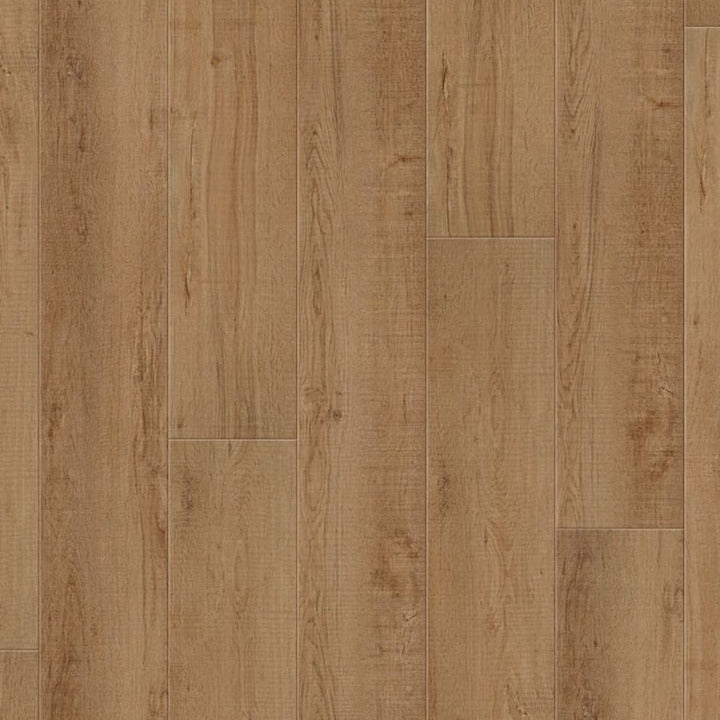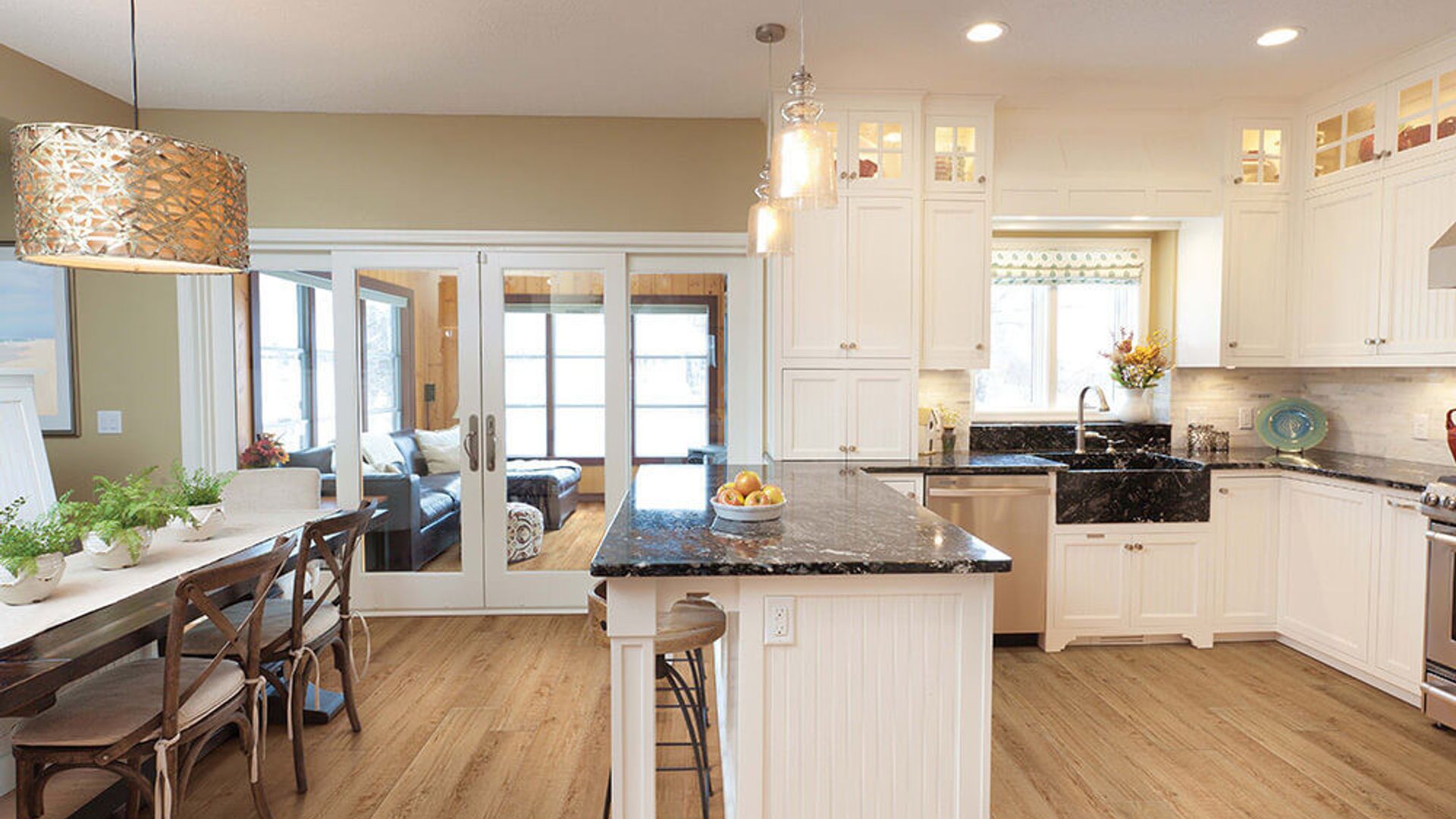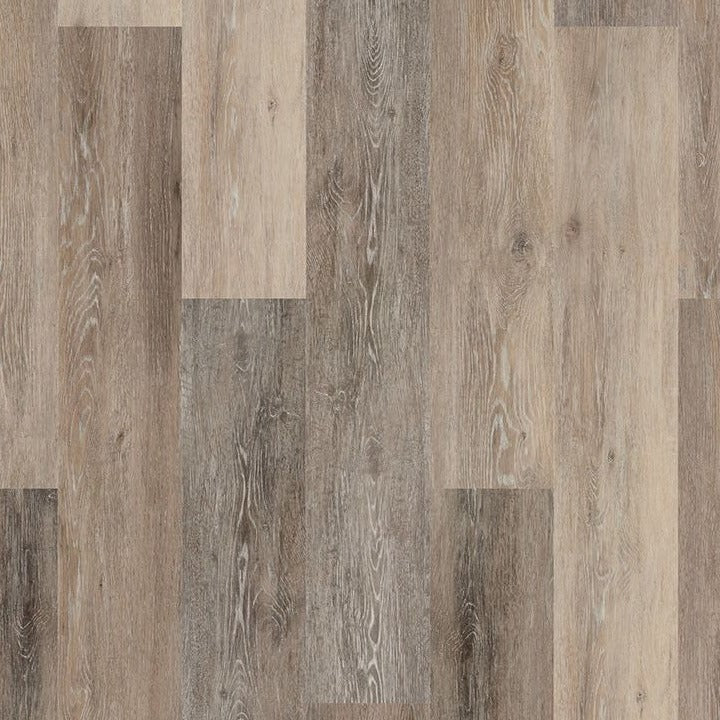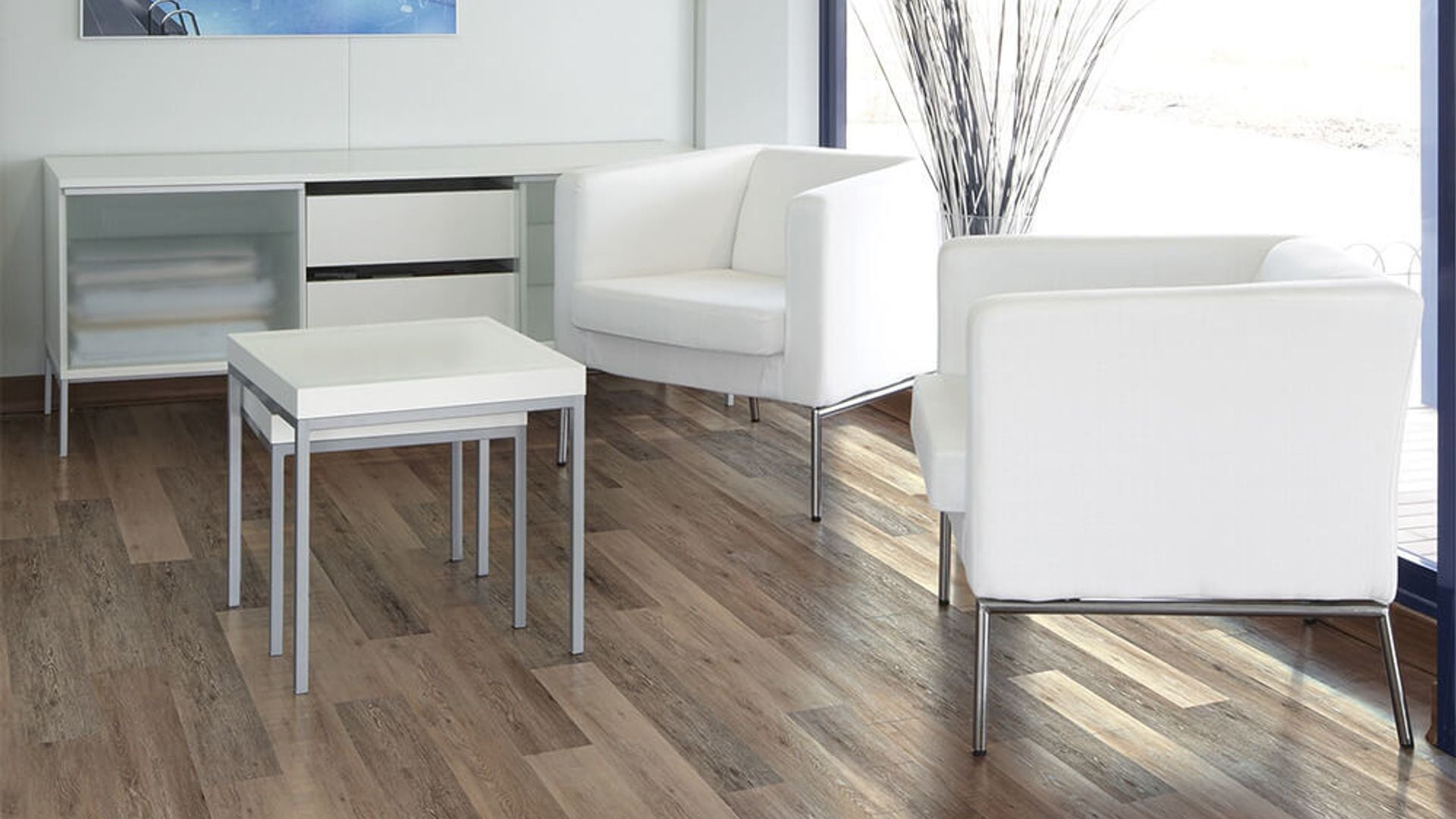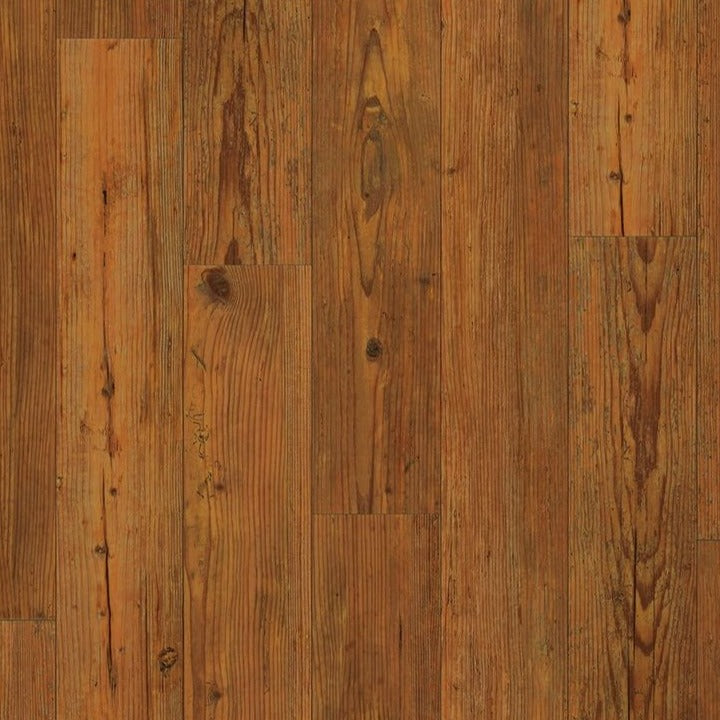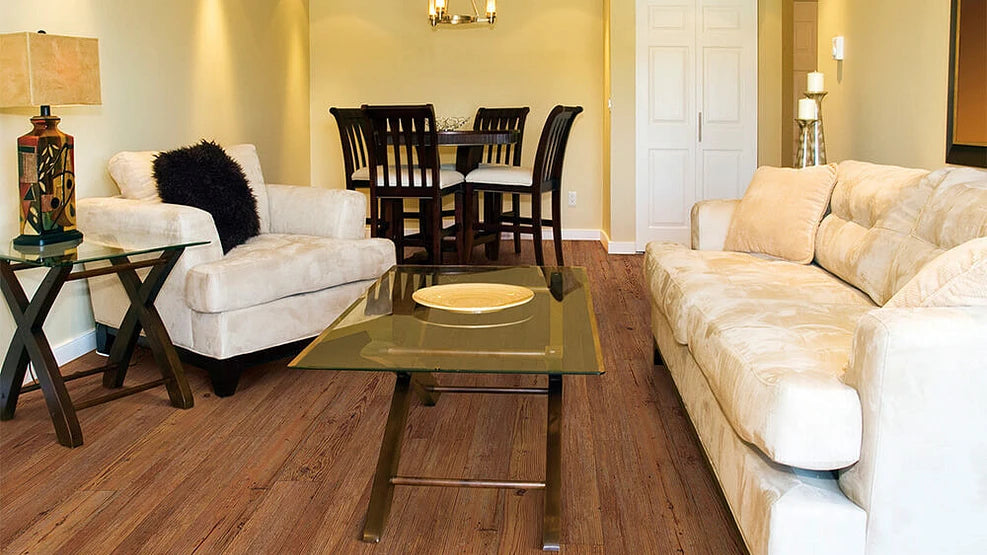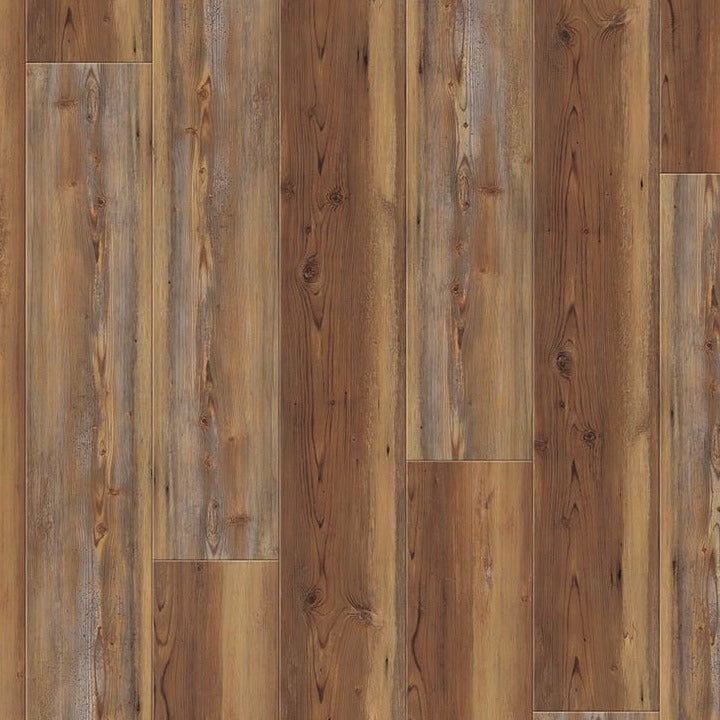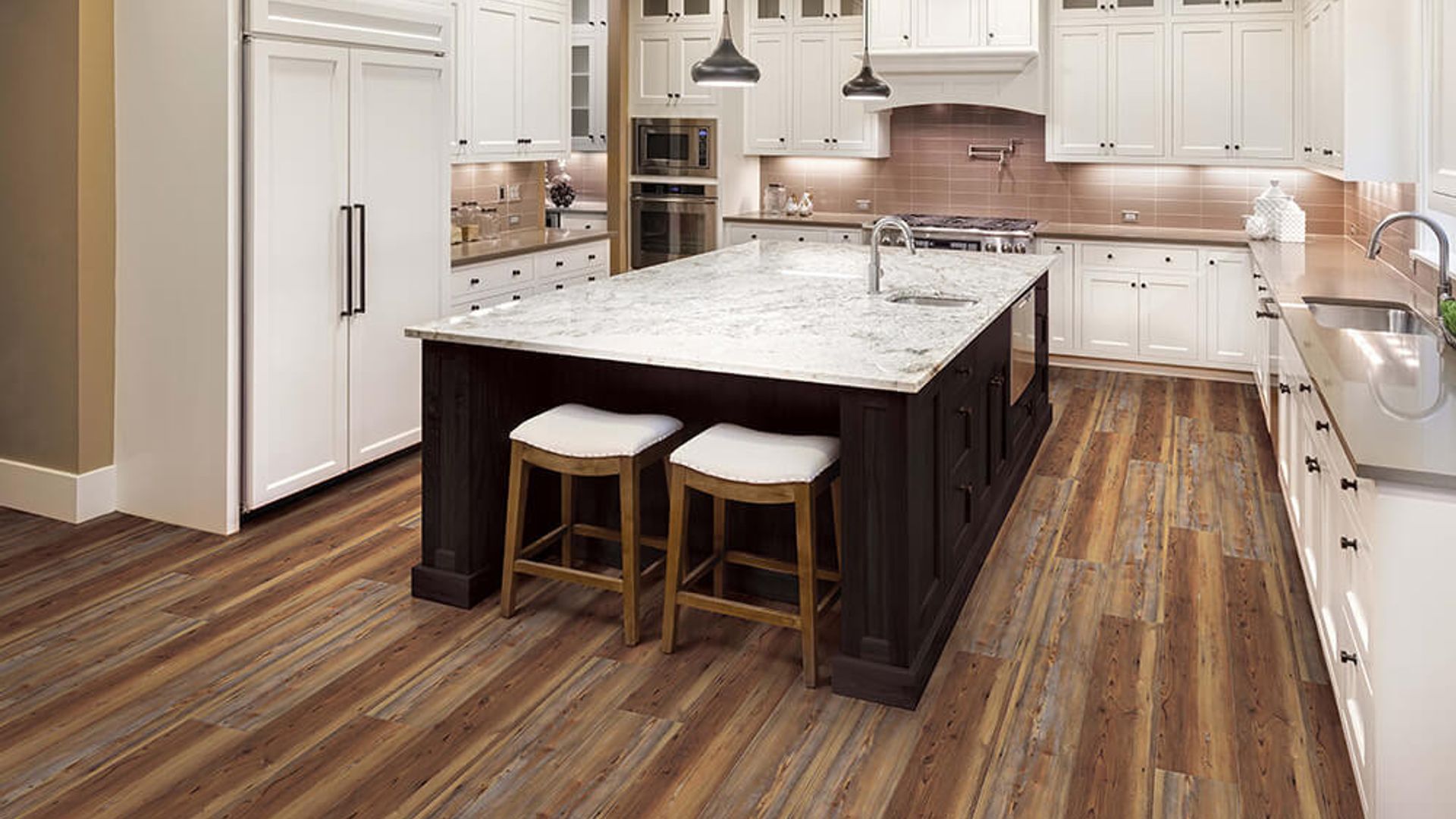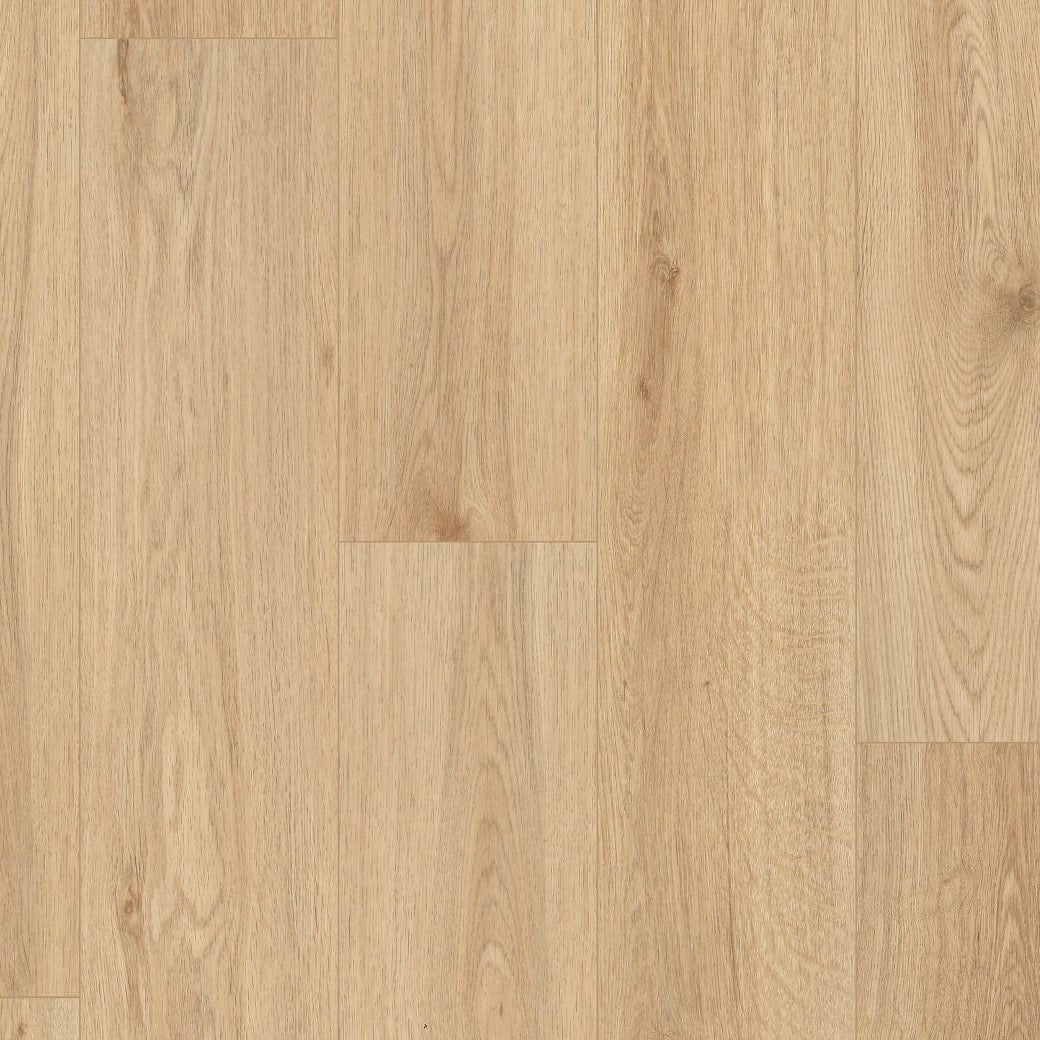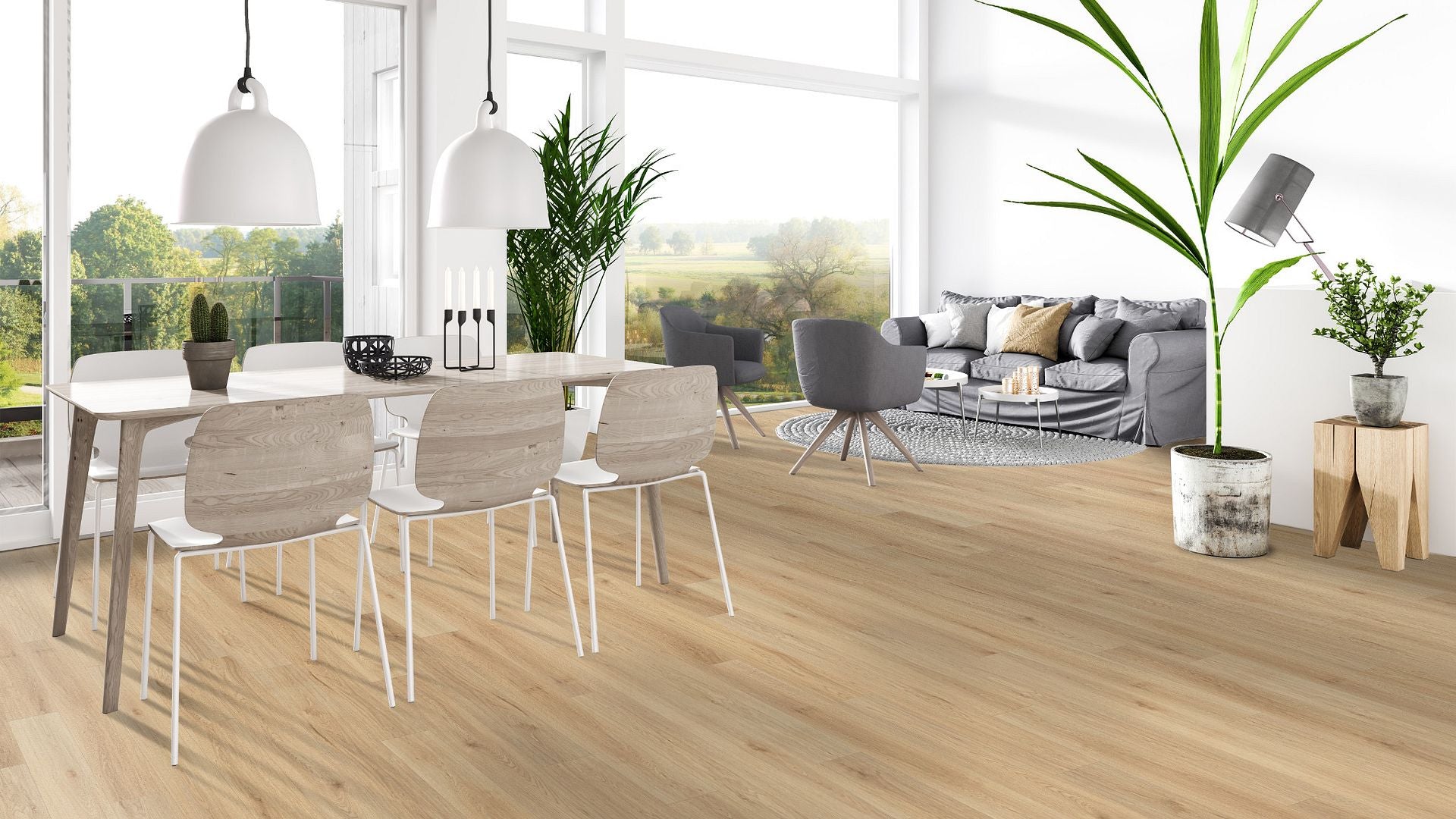As you browse the various flooring choices available today, you may have stumbled across luxury vinyl tile (LVT) and luxury vinyl planks (LVP). Considering these two luxury vinyl flooring options for your home or commercial setting can be confusing if you don’t know the differences and benefits between the two.
How can you choose the best option for your home if you don’t know the ins and outs of vinyl flooring? Lucky for you, that’s what we’re here for!
This post highlights LVT vs. LVP and the key differences, pros, cons, and similarities between the two types of flooring. Let’s get into these two high-quality forms of luxury vinyl!
What Is LVT?
Luxury vinyl tile, known as LVT, is a type of vinyl flooring made up of tiles that are cut to fit together. LVT flooring is designed to look like real hardwood or authentic stone.
It is often chosen instead of laminate flooring and standard tiles in home renovations because it’s a more affordable price and offers many benefits, including durability, waterproof capabilities, and appealing style and appearance.
What Is LVP?
Luxury vinyl planks, or LVP, are a cost-effective alternative to hardwood that many homeowners choose for their affordable price tag.
Luxury vinyl planks are cut long and slender to resemble hardwood. As the quality of vinyl has drastically improved through the years, luxury vinyl planks have become a very popular option for homeowners and in light commercial settings because of their durability, cost, and appearance.
LVT vs. LVP: Our In-Depth Comparison
The differences between LVP and LVT floors are worth knowing before deciding which type of luxury vinyl flooring you want in your home. It’s a big decision, and at Floor City, we want our customers to be well-informed on the differences and alternatives of flooring options as they shop.
Appearance and Style
Luxury vinyl tile is designed to perfectly resemble different variations of stone, ceramic, and even real hardwood. Because it’s designed to resemble different surfaces, luxury vinyl tiles are cut into standard tile shapes to ensure their authenticity in the home. LVT styles are typically more in the realm of stone and concrete, and the technology does an amazing job of creating realistic, genuine surface textures and colors.
Luxury vinyl planks are made up of long strips of vinyl that mimic the appearance of real hardwood floors. Vinyl planks come in a wide assortment of colors and textures that are all inspired by hardwood.
When creating vinyl planks, manufacturers ensure that each strip has similar embossing and scratching like real wood to elevate the authentic appearance of the planks. Even hardwood enthusiasts can be convinced that a luxury vinyl plank floor is real wood; that’s how well-designed this flooring is!
Installation
Luxury vinyl tile is cut into tile shapes and installed on the floor using a heavy-duty adhesive or through an interlocking click system. This type of flooring is most commonly installed in places where moisture is present, including bathrooms, kitchens, basements, and laundry rooms.
Luxury vinyl planks are installed by the glue-down method or sometimes installed above the existing flooring, called a floating floor. The vinyl planks are snapped together through the click-and-lock method.
Durability
Luxury vinyl tiles are highly resistant to wear and tear, scratches, dents, and more. If you’re looking for a luxury vinyl flooring product that does the most in terms of durability, luxury vinyl tiles are likely your best option.
Luxury vinyl plank flooring is water-resistant and best used in heavy-traffic areas with moisture and spills. The vinyl planks consist of four layers, including a durable core, backer board, vinyl layer, and a clear wear layer to prevent scratches and damage. For rooms with high sun exposure, you may see some fading or sun damage to your floors, which is a main flaw of luxury vinyl plank flooring.
Maintenance
Both vinyl tile and luxury plank vinyl flooring are extremely easy to maintain, keep clean, and care for. You’ll need a mild floor cleaner to mop, or you can simply sweep or vacuum your floors as you see fit. It’s important to avoid harsh chemicals or cleaning agents on luxury vinyl, which can cause discoloration or damage the wear layer.
LVP and LVT are popular choices because of their simple maintenance, especially when compared to real tile, hardwood, or stone floors. If cleaning your floors is not your favorite chore, LVP and LVT are both great choices!
Because of the multilayers of this type of flooring, if any damage does occur beneath the first two layers, it can be very challenging to repair it without ripping out entire sections of the flooring.
Cost
Both LVT and LVP are reasonably priced vinyl flooring options and can save homeowners a substantial amount of money when compared to using tile, hardwood, or stone.
Whether you’re completing a total house flip or simply renovating your floors one room at a time, both types of vinyl flooring will provide major cost savings if you opt to go that route. The quality you get for the price is highly appealing, particularly for homeowners who are very attached to hardwood and want something similar.
Longevity
Both LVP and LVT flooring offer excellent long-term flooring solutions that won’t cost you a small fortune to purchase or install. If well cared for, luxury vinyl plank and tile can last anywhere from 10 to 20 years, depending on the brand, quality, and installation method you choose.
Pros and Cons of LVT
Luxury vinyl tile has several pros that often entice homeowners to install LVT flooring in their homes, along with a few cons worth mentioning before you decide to install luxury vinyl flooring in your home.
Pros of LVT Flooring
-
Comfortable to walk on
-
Clear wear layer for additional durability
-
Ideal for kitchens, bathrooms, and basements
-
Sound absorbing
-
Stylish designs and patterns
-
Easy to clean—simply sweep, vacuum, or mop
-
Water-resistant
-
Warmer and softer than other tile and laminate flooring
-
Resistant to general wear and tear from kids, pets, and regular use
Cons of LVT Flooring
-
Not anti-slip—if any water sits on the surface, slipping is possible
-
Not biodegradable should you decide to replace your vinyl flooring with other materials
-
Won’t increase your home value
Pros and Cons of LVP
As you consider luxury vinyl planks, make sure you know the benefits and drawbacks of LVP flooring before selecting one over the other for your home or in a commercial setting.
Pros of LVP Flooring
-
Affordable and more cost-effective than real hardwood
-
Simple care and maintenance
-
Easy to install, can be done by inexperienced homeowners
-
Variations in style and design
-
Resistant to water, scratches, and other damage
Cons of LVP Flooring
-
May fade with too much sun exposure
-
Difficult to remove later on
-
Textures and colors may vary from each package, making it hard to match
-
Easier to damage and may show scratches and dents easier than LVT flooring
LVT vs. LVP: Waterproofing Benefits
Both LVP and LVT are 100% waterproof, which is a huge benefit for homeowners.
Because of the several layers of plastic that make up vinyl flooring, you truly won’t find a better-suited option for your kitchen, basement, bathroom, or laundry room. Homeowners looking for a waterproof option that will last for many years can rest assured that the durability, water resistance, and easy maintenance of LVP and LVT floors are unmatched by any other vinyl flooring.
Vinyl Flooring at Floor City
Both vinyl tile and luxury plank flooring come in various sizes, textures, and colors from Floor City. We carry the biggest, most reputable names in flooring, including Armstrong, COREtec, Mohawk, and Shaw, in both click-lock and glue-down installation options. Our most popular color variations include weathered gray, oak, maple, cherry, and many others.
When you shop for vinyl flooring at Floor City, you can rest assured that quality and customer experience are at the top of our priority list. We strive to provide our customers with a seamless, informative experience anytime they find their way to our website.
We understand that shopping for flooring can be overwhelming, especially if you’re new to DIY projects as a homeowner. Our team of flooring specialists is here to guide you through the shopping experience and answer all your questions.
Final Thoughts: LVT vs. LVP
The main difference between LVT vs LVP flooring is in the size, appearance, and colors of the flooring. In terms of durability, maintenance, and quality, these two types of vinyl flooring are mostly similar, with a few notable differences.
If you are considering replacing your real hardwood floors with luxury vinyl tile or vinyl plank, we have fantastic flooring options at Floor City that are durable, easy to clean, and will last for years to come in your home.
Depending on your home’s design and your preferences, luxury vinyl flooring is a great investment in your home. Explore our luxury vinyl tile and our luxury vinyl plank flooring.


